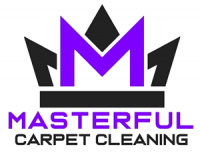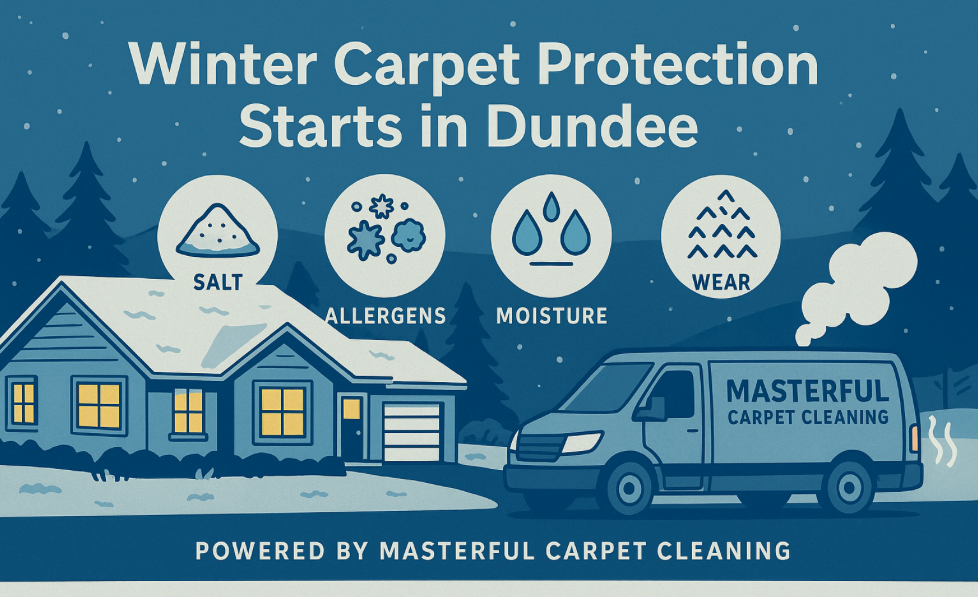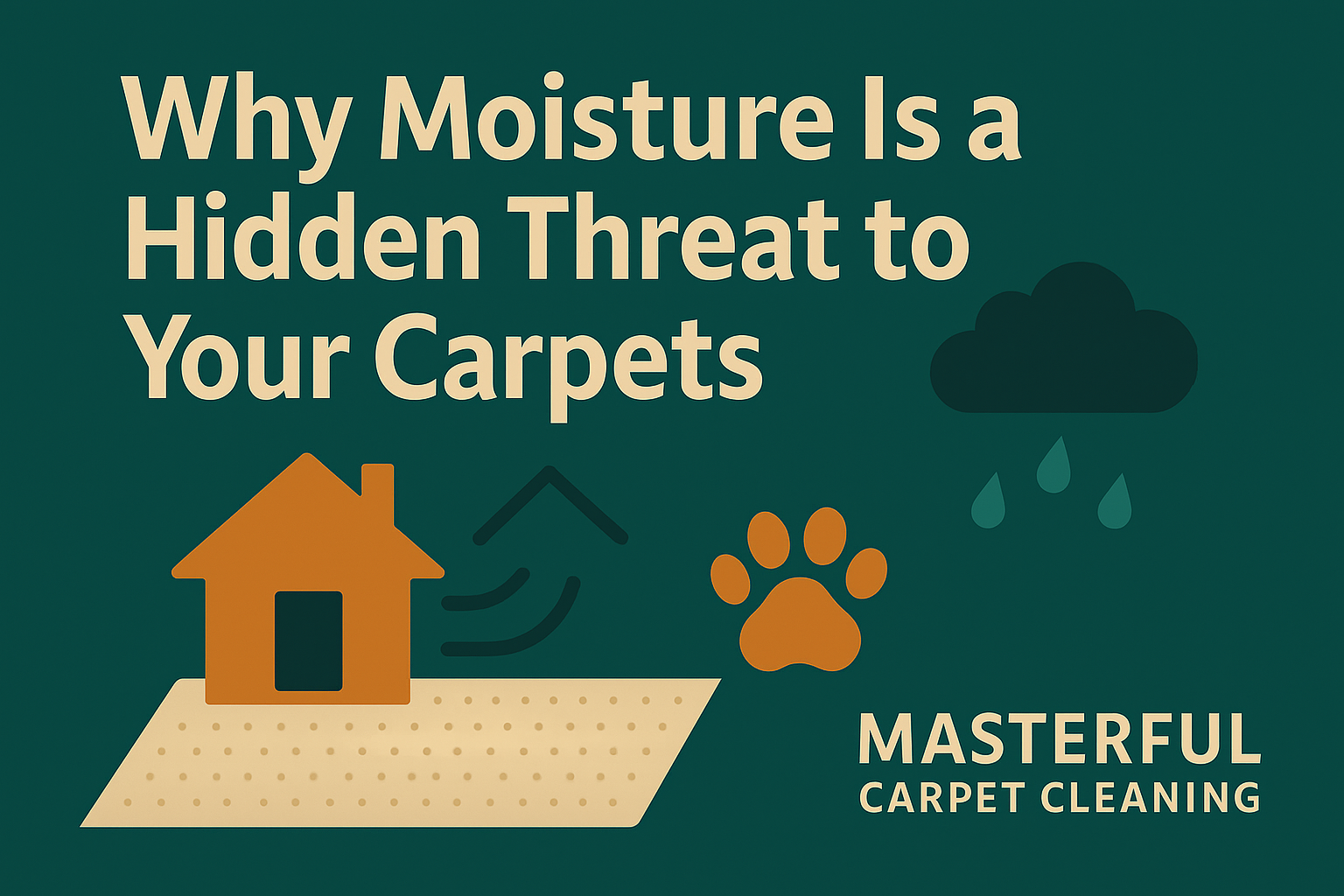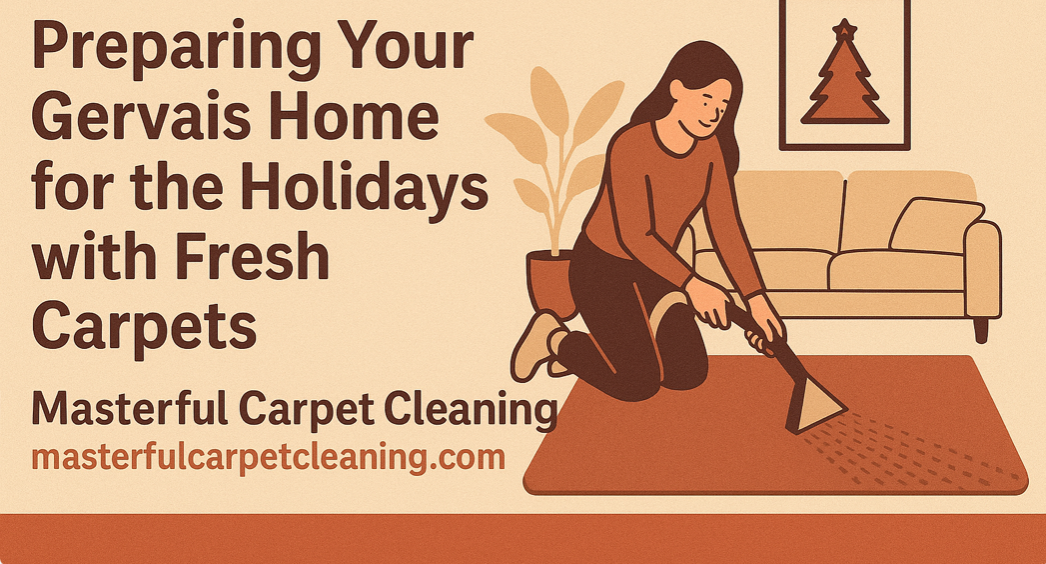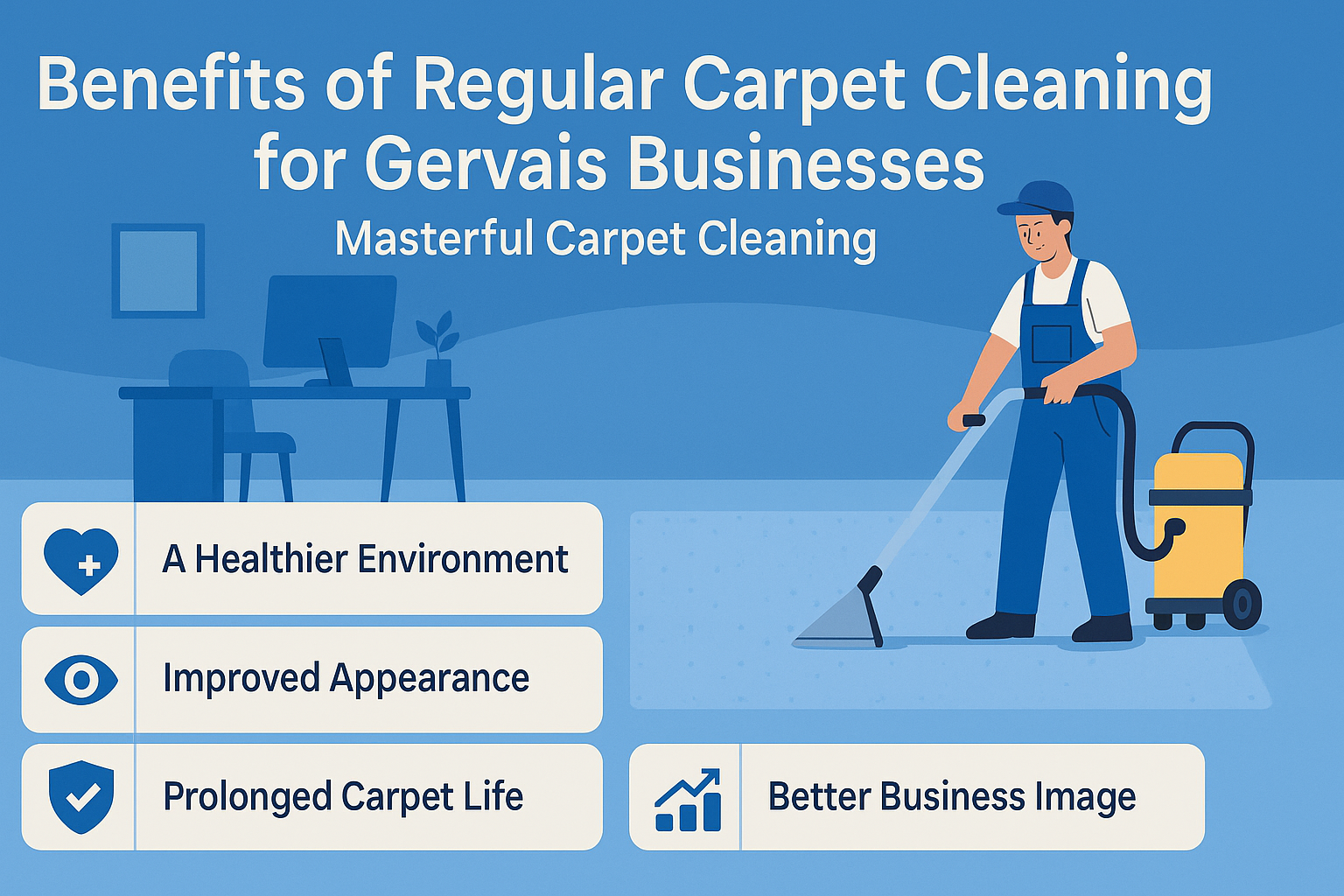Preventive Measures for Long-Term Floor Care
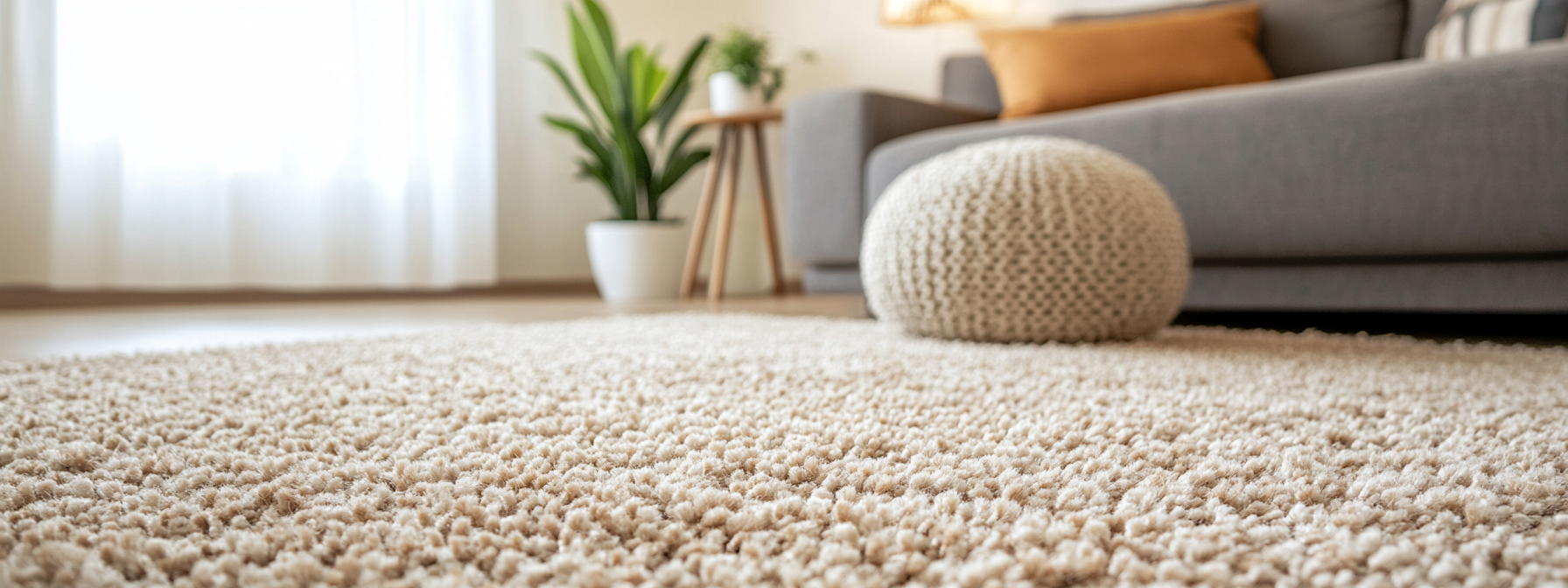
Floors are a significant investment in any home, contributing not only to its aesthetic appeal but also to its overall value. To ensure that your floors remain beautiful and durable for years to come, it’s important to implement preventive measures tailored to each type of flooring.
This guide will cover practical strategies to protect your floors from damage, maintain their appearance, and extend their lifespan.
Preventive Measures for All Floor Types
Regardless of the type of flooring you have, certain preventive measures are universally beneficial. These steps will help you avoid common issues like scratches, stains, and wear, keeping your floors in pristine condition.
Regular Cleaning
- Importance: Regular cleaning is the first line of defense against dirt, dust, and debris, which can cause scratches and dull the finish of your floors. Neglecting routine cleaning can lead to a buildup of grime that’s more difficult to remove and can damage the flooring over time.
- Best Practices:
- Daily: Sweep or vacuum high-traffic areas to prevent dirt from being ground into the floor.
- Weekly: Mop or clean with a suitable floor cleaner, depending on your floor type. Use a microfiber mop for hardwood, a pH-neutral cleaner for tile, and a vacuum with a beater bar for carpets.
Protective Mats and Rugs
- Why They Matter: Placing mats and rugs in high-traffic areas—such as entryways, hallways, and kitchens—helps to catch dirt and moisture before it reaches your floors. This is especially important in preventing scratches and reducing wear in areas that are walked on frequently.
- Placement Tips:
- Entryways: Use a durable, absorbent mat at every entrance to trap dirt and moisture from shoes.
- Kitchens: Place rugs near sinks and stoves to catch spills and provide cushioning where you stand the most.
- Hallways: Lay runners along hallways to protect against the constant foot traffic that can wear down flooring.
Furniture Pads
- Purpose: Heavy furniture can easily scratch or dent your floors when moved or even just from everyday use. Furniture pads act as a barrier between your furniture and the floor, preventing damage.
- Types and Application:
- Felt Pads: Ideal for hardwood and tile floors, felt pads provide a soft cushion and are available in various sizes to fit the legs of chairs, tables, and other furniture.
- Rubber Pads: These are best for furniture that is prone to sliding, as they provide more grip and prevent movement, which can cause scratches.
Humidity Control
- Impact on Floors: Changes in humidity can cause wood floors to expand or contract, leading to gaps, warping, or buckling. Even tile and vinyl floors can suffer if the subfloor is affected by moisture.
- How to Maintain Optimal Humidity:
- Use a Hygrometer: Monitor the humidity levels in your home, aiming to keep them between 35% and 55%.
- Dehumidifiers and Humidifiers: Use a dehumidifier in the summer and a humidifier in the winter to maintain consistent humidity levels. This is particularly important for homes with hardwood flooring.
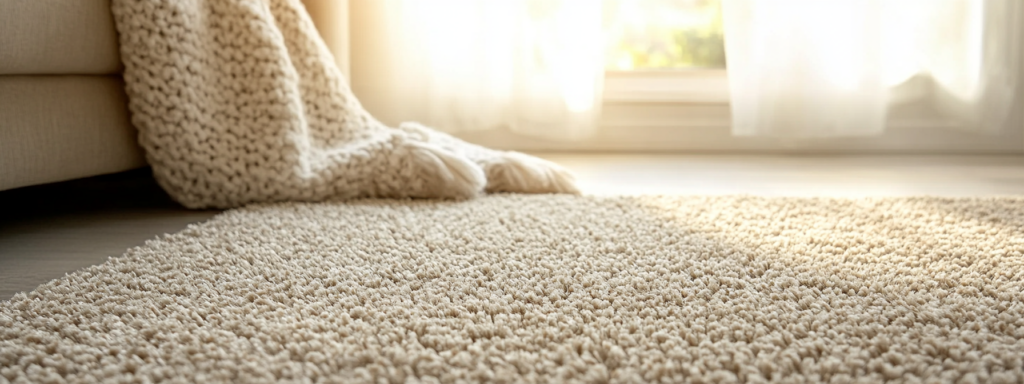
Specific Preventive Measures for Different Floor Types
Different flooring materials require unique care strategies to preserve their appearance and functionality. Below are specific preventive measures for hardwood, tile, carpet, and vinyl floors.
Hardwood Floors
- Maintaining the Finish:
- Why It’s Important: The finish on hardwood floors acts as a protective layer, guarding against scratches, moisture, and wear.
- Preventive Measures:
- Regular Dusting: Use a soft-bristle broom or a microfiber mop daily to remove dust and prevent it from scratching the surface.
- Reapply Finish: Depending on traffic, reapply a protective finish every 3 to 5 years to maintain the floor’s luster and durability.
- Avoid Excess Water: Water can seep into the wood, causing swelling, warping, or stains. Use a damp, not wet, mop and promptly dry any spills.
- Protecting Against Scratches:
- Furniture Pads: Place felt pads under furniture legs to prevent scratching when moving furniture.
- Area Rugs: Use area rugs in high-traffic areas to protect the floor from dirt and wear.
Tile Floors
- Sealing Grout:
- Why It’s Important: Grout is porous and can easily absorb dirt, moisture, and stains, leading to discoloration and weakening.
- Preventive Measures:
- Seal Grout Lines: Apply a grout sealer once a year to protect against moisture and stains. Clean the grout thoroughly before sealing to avoid trapping dirt.
- Avoid Harsh Cleaners: Use pH-neutral cleaners to avoid eroding the grout or dulling the tiles.
- Preventing Cracks:
- Ensure Proper Installation: Cracks often result from subfloor issues or improper installation. If cracks appear, consult a professional to address underlying problems.
- Use Mats and Rugs: Place mats in areas prone to heavy use, such as entryways, to reduce the impact on the tile.
Carpeted Floors
- Preventing Stains:
- Stain Prevention Techniques:
- No-Shoe Policy: Implement a no-shoe policy indoors to minimize dirt and grime being tracked onto the carpet.
- Spot Cleaning: Address spills immediately using a blotting method with a clean cloth. For tougher stains, use a carpet cleaner suited to the material.
- Regular Vacuuming:
- Importance: Regular vacuuming prevents dirt and dust from embedding into the carpet fibers, which can lead to wear and tear.
- Vacuuming Frequency: Vacuum high-traffic areas daily, and the entire carpet at least once a week using a vacuum with strong suction and a HEPA filter.
- Stain Prevention Techniques:
- Dealing with Heavy Traffic:
- Furniture Rotation: Periodically rearrange furniture to change traffic patterns and avoid uneven wear on the carpet.
- Carpet Protectors: Use carpet runners or area rugs in heavily trafficked areas to shield the carpet from constant footfall.
Vinyl and Laminate Floors
- Gentle Cleaning:
- Why It’s Necessary: Harsh chemicals and excessive moisture can damage vinyl and laminate floors, causing discoloration or warping.
- Preventive Measures:
- Use Mild Cleaners: Opt for mild, non-abrasive cleaners designed for vinyl or laminate surfaces. Avoid soaking the floor—use a damp mop instead.
- Immediate Spill Cleanup: Clean up spills promptly to prevent staining or damage to the floor’s finish.
- Avoiding Heavy Impacts:
- Protective Pads: Use furniture pads under heavy items to distribute weight and prevent indentations.
- Avoid Dropping Heavy Objects: Dropped objects can crack or dent the surface, so take care to avoid impacts.
- UV Protection:
- Prevent Fading: Vinyl and laminate floors can fade with prolonged exposure to sunlight. Use curtains, blinds, or UV-protective window film to reduce sunlight exposure.
- Rotating Rugs: Move area rugs and furniture periodically to avoid uneven fading from sunlight.
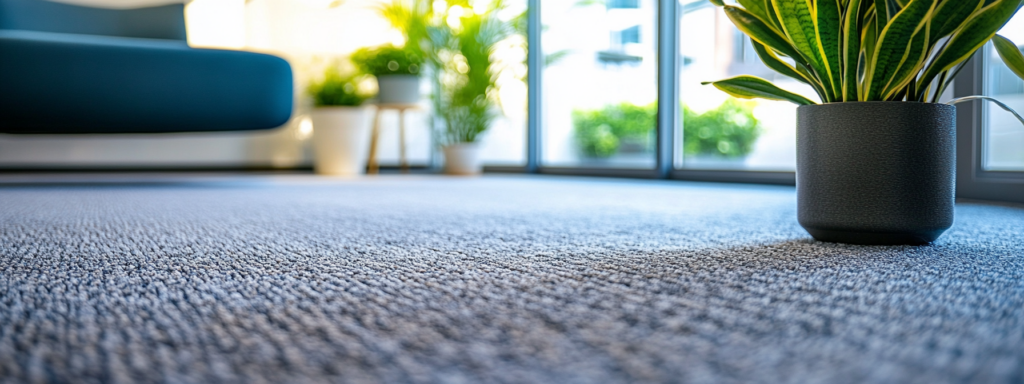
Seasonal Floor Care Tips
Each season presents unique challenges for floor maintenance, from winter’s harsh conditions to summer’s intense sunlight. Implementing seasonal care tips helps you protect your floors year-round and address the specific needs of each season.
Winter Floor Care
- Preventing Salt and Moisture Damage:
- Importance: During winter, floors are particularly vulnerable to damage from salt, snow, and moisture tracked in from outside. Salt can scratch and dull floors, while moisture can lead to warping or mold growth.
- Preventive Measures:
- Use Door Mats: Place heavy-duty mats both inside and outside entryways to trap salt, dirt, and moisture before they reach your floors.
- Wipe Up Immediately: Promptly clean up any snow or water that makes its way inside to prevent it from seeping into the floor and causing damage.
- Boot Trays: Use boot trays near entrances to provide a designated area for wet shoes and boots, preventing them from sitting directly on your floors.
- Regular Maintenance:
- Daily Cleaning: Sweep or vacuum entryways daily to remove salt and grit.
- Mopping: Mop floors regularly with a damp mop to remove any residual salt. Use a cleaner that is safe for your floor type, and be sure to dry the floor thoroughly afterward.
Spring Floor Care
- Deep Cleaning After Winter:
- Importance: After the winter season, floors often accumulate dirt, salt residue, and moisture damage, making spring the perfect time for a thorough cleaning.
- Preventive Measures:
- Deep Clean Carpets: Shampoo or steam clean carpets to remove dirt and allergens that may have built up during the winter months.
- Strip and Refinish Hardwood: Consider stripping and refinishing hardwood floors to repair any damage from winter moisture and restore their shine.
- Tile and Grout Cleaning: Use a pH-neutral cleaner to deep clean tile floors and grout lines, removing any winter residue.
- Addressing Moisture Issues:
- Dehumidifiers: As temperatures rise, so does humidity. Use a dehumidifier to keep moisture levels in check, particularly in areas with hardwood or laminate flooring.
- Inspect for Damage: Check for signs of water damage, such as warping or discoloration, and address any issues immediately to prevent further damage.
Summer Floor Care
- Protecting Against UV Damage:
- Importance: Intense sunlight during the summer can fade and discolor floors, especially hardwood, vinyl, and laminate.
- Preventive Measures:
- Use Window Coverings: Install curtains, blinds, or UV-protective window films to block direct sunlight and reduce the risk of fading.
- Rotate Rugs and Furniture: To avoid uneven fading, periodically rotate area rugs and rearrange furniture to expose different areas of the floor to sunlight.
- Managing Increased Foot Traffic:
- Floor Mats: Place mats at entrances to capture dirt and sand from summer activities, preventing them from scratching the floors.
- Regular Cleaning: Increase the frequency of sweeping, vacuuming, and mopping during the summer to keep up with the higher levels of foot traffic and debris.
Fall Floor Care
- Preparing for Colder Months:
- Importance: Fall is the time to prepare your floors for the challenges of winter, including moisture, salt, and heavy traffic during the holiday season.
- Preventive Measures:
- Seal Hardwood and Tile: If it’s been a while since you sealed your hardwood or tile floors, fall is the perfect time to do it. Sealing protects against moisture and makes cleaning easier.
- Deep Clean Carpets: Give carpets a deep clean before winter to remove dirt and allergens, ensuring they are ready for the increased use during the colder months.
- Final Maintenance Before Winter:
- Inspect and Repair: Check your floors for any existing damage, such as cracks or loose boards, and repair them before winter’s harsher conditions set in.
- Upgrade Mats: Replace or upgrade door mats and boot trays to ensure they can handle the extra moisture and dirt that winter will bring.
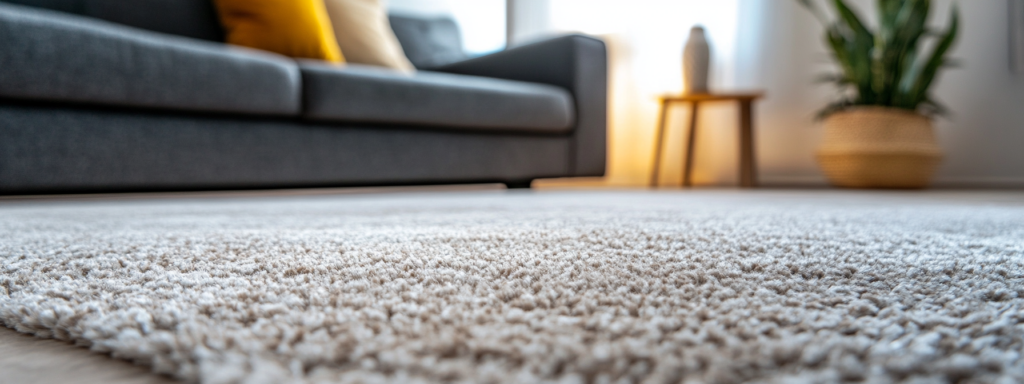
Common Mistakes to Avoid in Floor Care
Proper floor care involves not only knowing what to do but also knowing what to avoid. Common mistakes can lead to unnecessary damage, reduced lifespan, and additional costs.
Here are the key pitfalls to steer clear of:
Using Incorrect Cleaning Products
- Why It’s a Problem:
- Using the wrong cleaning products can cause significant damage to your floors. Harsh chemicals can strip the finish off hardwood floors, erode grout on tile floors, and cause discoloration or warping on vinyl and laminate floors.
- What to Do Instead:
- Hardwood Floors: Always use pH-neutral cleaners specifically designed for hardwood. Avoid using water-based solutions excessively, as moisture can seep into the wood and cause damage.
- Tile Floors: Use a pH-neutral cleaner for tiles and grout. Avoid acidic or alkaline cleaners, which can damage the grout and the tile’s surface.
- Vinyl and Laminate Floors: Stick to mild, non-abrasive cleaners. Avoid products with strong solvents or bleach, which can lead to discoloration and surface damage.
Ignoring Spills
- Why It’s a Problem:
- Spills, if left unattended, can lead to staining, warping, and even mold growth. This is particularly true for materials like carpet, hardwood, and certain types of tiles that are porous and absorb moisture quickly.
- What to Do Instead:
- Immediate Action: Always clean up spills as soon as they happen. Use a soft cloth to blot (not rub) the spill to avoid spreading it or pushing it deeper into the flooring.
- Special Considerations: For carpet, use a carpet cleaner designed to treat stains and follow up with a rinse of water. For hardwood and tile, dry the area completely after cleaning to prevent water damage.
Overlooking High-Traffic Areas
- Why It’s a Problem:
- High-traffic areas experience more wear and tear, leading to uneven floor deterioration. Ignoring these areas can result in visible damage like scratches, dull spots, and worn-out finishes that are difficult to repair.
- What to Do Instead:
- Extra Protection: Use rugs or runners in hallways, entryways, and other high-traffic areas. This not only protects the flooring but also adds a decorative touch to your space.
- Regular Maintenance: Increase the frequency of cleaning in these areas. For hardwood floors, consider reapplying a protective finish more often in high-traffic spots.
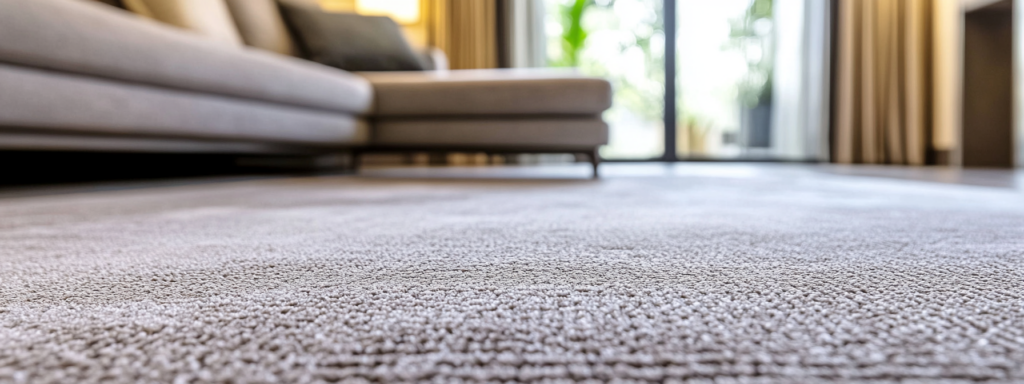
When to Consider Professional Floor Care Services
While regular maintenance can go a long way in keeping your floors in good condition, certain situations call for professional intervention.
Here’s when to seek expert help:
Indicators for Professional Help
- Deep Scratches and Gouges:
- Hardwood Floors: Deep scratches or gouges in hardwood floors can’t be easily repaired with DIY methods. Professionals can sand down the floors and reapply a finish to restore their original look.
- Stubborn Stains:
- Carpet: If you’ve tried everything and the stain persists, it’s time to call in a professional carpet cleaner. They have the tools and expertise to remove even the most stubborn stains without damaging the fibers.
- Tile and Grout Deterioration:
- Tile Floors: Grout that has become deeply stained or is starting to crumble needs professional attention. Professionals can clean, repair, and reseal grout to restore your tile floor’s appearance and integrity.
Benefits of Professional Care
- Advanced Equipment: Professionals use industrial-grade equipment that delivers a deeper clean than regular household tools. This is especially beneficial for carpet cleaning, where high-powered steam cleaners can remove embedded dirt and allergens.
- Expert Techniques: Trained technicians know the best methods for each type of flooring, ensuring that your floors are cleaned and treated without causing damage.
- Time and Effort Savings: Hiring professionals saves you time and ensures the job is done correctly the first time, reducing the need for frequent touch-ups.
Recommended Frequency for Professional Cleaning
- Hardwood Floors: Every 1 to 3 years, depending on traffic and wear, to maintain the finish and prevent damage.
- Carpets: At least once a year, or every 6 months in households with pets or high foot traffic, to remove deep-seated dirt and allergens.
- Tile Floors: Every 1 to 2 years, especially for grout cleaning and resealing, to maintain the appearance and durability of your tiles.

Treat Your Floors the Masterful Way
Proper floor care is important for preserving the appearance and durability of your flooring, regardless of the type. By taking preventive measures, avoiding common mistakes, and knowing when to seek professional help, you can extend the life of your floors and keep them looking their best for years to come.
From regular cleaning routines and seasonal maintenance to professional services, each step you take contributes to the long-term care of your floors. Whether you have hardwood, tile, carpet, or vinyl flooring, following the guidelines provided in this comprehensive guide will help you maintain a beautiful and resilient floor surface in your home.
At Masterful Carpet Cleaning, we understand that maintaining floors can be a challenge, especially when it comes to deep cleaning and dealing with stubborn issues. Our team of professionals is here to help. Whether you need expert carpet cleaning, tile and grout restoration, or hardwood floor refinishing, we offer a range of services designed to meet your floor care needs.
Contact us today to schedule a consultation and learn how we can help you preserve the beauty and longevity of your floors with our specialized cleaning and maintenance services.
Author
-

As the Co-Owner of Masterful, Randy has been providing quality cleaning services to the Salem and Portland areas of Oregon for many years. He has built a reputation for excellence in the industry. His team take prides in using the latest cleaning techniques and technologies to deliver exceptional results every time.
View all posts
